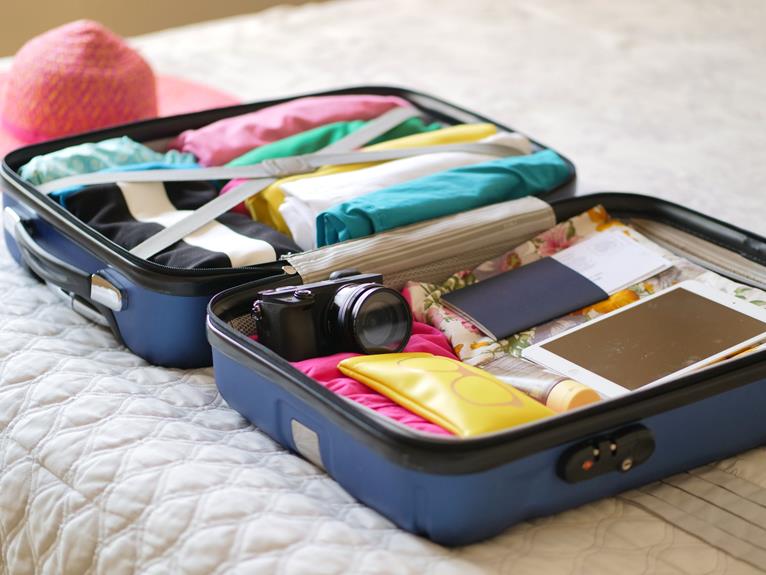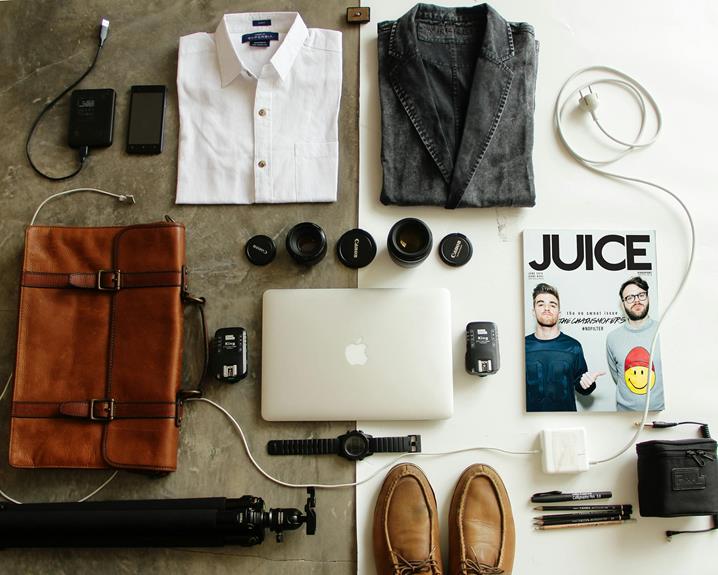Why Limit Spending on Theme Park Mementos?
As I stroll through the bustling theme park, vibrant displays of plush toys, keychains, and t-shirts beckon to visitors like colorful sirens. The allure of these keepsakes is undeniable, but have you ever paused to ponder the aftermath of indulging in every trinket that catches your eye? Join me in exploring the rationale behind why curbing spending on theme park mementos may not only save your wallet but also enhance the true essence of your park experience.
Key Takeaways
- Avoid straining budgets with unnecessary souvenir expenses.
- Prioritize experiences over material possessions for lasting memories.
- Impulse buying at theme parks can lead to overspending.
- Setting strict budgets helps control spending on mementos.
- Quality experiences create more enduring memories than material items.
Financial Impact of Souvenir Shopping
Souvenir shopping at theme parks can greatly impact one's finances, often leading to unnecessary expenses that may strain a budget. According to a study by LendEDU, the average visitor to a theme park spends around $75 on souvenirs alone. This mightn't seem like much, but when considering that a family of four could easily spend over $300 just on mementos, the impact becomes more apparent.
Furthermore, the allure of limited edition or exclusive merchandise can entice visitors to overspend. This sense of urgency to purchase items that may not be available later can cloud judgment and lead to impulse buying. In fact, data shows that almost 60% of visitors admit to making impulse purchases while souvenir shopping at theme parks.
Therefore, being mindful of one's budget and setting limits on souvenir spending can help avoid unnecessary financial strain. By prioritizing experiences over material possessions, visitors can fully enjoy their time at the park without feeling the burden of overspending on mementos.
Setting Budget Priorities
When managing finances at theme parks, it's essential to prioritize spending on experiences over material possessions. While it can be tempting to splurge on souvenirs, focusing on creating memories can lead to a more fulfilling visit. Setting budget priorities is vital to guarantee that you make the most of your time and money at the park.
- Analyze Ticket Options: Compare different ticket packages to find the best value for your needs.
- Plan Meals in Advance: Research dining options to avoid overspending on food during your visit.
- Consider Transportation Costs: Factor in any parking fees or transportation expenses when budgeting for your trip.
- Allocate Funds for Unexpected Expenses: Set aside a portion of your budget for emergencies or unexpected purchases to avoid going over your limit.
Avoiding Impulse Purchases
To maximize your budget at theme parks, it's essential to resist the temptation of spontaneous purchases and instead focus on thoughtful spending decisions. Impulse buying can quickly eat into your funds, leaving you with less money for experiences that truly matter. Studies show that impulse purchases are often driven by emotions rather than necessity, leading to buyer's remorse in many cases. According to research conducted by Stanford University, consumers tend to spend 30% more when making impulse purchases compared to planned ones.
To avoid falling into the trap of impulse buying, consider setting a strict budget before entering the park. By allocating specific amounts to food, souvenirs, and activities, you can better control your spending and prioritize what truly enhances your experience.
Additionally, taking a moment to pause before making a purchase can help you evaluate if it aligns with your priorities and if it's worth the investment. Remember, the joy of a thoughtful purchase lasts much longer than the fleeting satisfaction of an impulse buy.
Alternative Memento Ideas
Consider exploring creative alternatives for keepsakes that serve as lasting reminders of your theme park visit while remaining mindful of your budget constraints. When looking for alternative memento ideas, it's essential to find options that are both meaningful and cost-effective.
Here are some suggestions to help you commemorate your theme park experience without breaking the bank:
- Collectible Pins: Start a collection of themed pins that you can display or trade with others. Pins are often more affordable than other souvenirs and can hold sentimental value.
- Pressed Pennies: Pressed penny machines are a fun and inexpensive way to create unique souvenirs. Collect different designs from various attractions within the park.
- Photobook: Create a personalized photobook with pictures from your visit. Many online services offer affordable options for printing customized photo books.
- DIY Crafts: Get creative and make your own mementos, such as keychains, magnets, or ornaments, using materials found at craft stores. DIY projects can be both budget-friendly and personalized.
Teaching Financial Responsibility
Teaching financial responsibility is essential in today's consumer-driven society. Money management lessons provide individuals with the skills needed to make informed financial decisions.
Setting spending boundaries and understanding the value of experiences over material possessions are key aspects of cultivating a financially responsible mindset.
Money Management Lessons
I learned valuable money management lessons through my experiences with budgeting and saving, which instilled in me the importance of teaching financial responsibility to others.
- Tracking Expenses: By meticulously recording every expenditure, one can identify patterns and areas where money can be saved.
- Setting Clear Financial Goals: Establishing specific objectives helps guide spending decisions and encourages saving towards those goals.
- Emergency Funds: Creating a safety net for unexpected expenses guarantees financial stability and reduces the need for borrowing.
- Investing Wisely: Learning about different investment options and starting early can lead to long-term financial growth and security.
These lessons have equipped me with the necessary tools to make informed financial decisions and secure my financial future.
Teaching these principles to others can empower them to take control of their finances, make smarter choices, and achieve their financial goals.
Setting Spending Boundaries
Effective financial education involves establishing clear spending boundaries to instill the importance of responsible money management in individuals. Setting spending boundaries is pivotal in developing a strong foundation for financial stability. By defining limits on expenditures, individuals can prioritize their spending, ensuring that essential needs are met before indulging in discretionary purchases.
Research indicates that individuals who adhere to spending boundaries are more likely to achieve their financial goals and experience reduced financial stress.
When establishing spending boundaries, it's essential to take into account individual circumstances such as income, expenses, and financial goals. By tailoring spending limits to align with personal financial objectives, individuals can effectively manage their finances and work towards long-term financial security.
Additionally, setting clear boundaries can help individuals differentiate between wants and needs, enabling them to make informed spending decisions.
Value of Experiences
An analysis of financial education programs reveals the significant impact of prioritizing experiential learning in fostering financial responsibility. When individuals engage in experiences that involve financial decision-making, they tend to develop a deeper understanding of money management. This understanding is essential for cultivating responsible financial behaviors.
Here are four key benefits of emphasizing the value of experiences in financial education:
- Behavioral Change: Experiential learning can lead to lasting behavioral changes in how individuals approach financial matters.
- Real-World Application: Experiences provide a real-world context for applying financial concepts and principles.
- Emotional Connection: Engaging in experiences creates emotional connections to financial decisions, reinforcing learning.
- Risk Management: Through experiences, individuals learn to assess risks and make informed financial choices based on potential outcomes.
Minimizing Clutter at Home
To declutter effectively at home, one must prioritize items that hold both practical value and sentimental significance. By keeping this in mind, we can create a living space that's organized and conducive to a sense of freedom. Clutter can lead to feelings of overwhelm and stress, hindering our ability to fully enjoy our living environment.
Studies have shown that excess clutter can also impact mental well-being, contributing to anxiety and a sense of unease. To minimize clutter, it's beneficial to regularly assess belongings and consider their utility and emotional importance. Items that serve a practical purpose or hold sentimental value should be kept, while those that no longer serve a purpose or evoke positive emotions can be discarded or donated.
Adopting a minimalist approach to belongings can result in a more spacious and peaceful home environment, allowing for increased freedom of movement and thought. By prioritizing only the most meaningful items, we can create a space that fosters a sense of calm and contentment.
Quality Over Quantity
When considering decluttering your living space, prioritizing quality over quantity can lead to a more intentional and fulfilling environment. Focusing on items that hold significant value rather than accumulating numerous possessions can enhance the overall atmosphere of your home. Embracing a minimalist approach by selecting high-quality pieces can bring a sense of purpose and appreciation to your living space.
Durability: Investing in durable items reduces the need for frequent replacements, ultimately saving time and money.
Aesthetics: Choosing quality over quantity allows you to curate a visually appealing environment that reflects your personal style.
Functionality: Quality items often offer better performance and functionality, enhancing your daily living experience.
Emotional Value: Possessions with sentimental value can evoke positive emotions and strengthen the connection you have with your living space.
Creating Lasting Memories
Memories that endure over time are often shaped by the quality of experiences rather than the quantity of possessions collected. When visiting a theme park, the moments that stick with us are usually the shared laughter, thrilling rides, and magical encounters. These experiences are what truly create lasting memories, not the trinkets and souvenirs that can clutter our shelves. To illustrate this point further, let's consider the following comparison table:
| Aspect | Quality Experience | Quantity of Possessions | Impact on Memory |
|---|---|---|---|
| Family Time | Spent the day exploring the park together | Purchased multiple small souvenirs | Stronger bonding and shared stories |
| Thrill of Rides | Conquered the tallest roller coaster | Bought various themed keychains | Adrenaline rush remembered vividly |
| Character Meetups | Had a personal conversation with favorite character | Bought character plushies and hats | Genuine interactions cherished more |
Post-Visit Budget Reflection
After visiting a theme park, it's essential to conduct a detailed reflection on expenses to assess the financial impact of the trip accurately. This reflection allows for a clear understanding of where the money was spent and how it aligns with the overall budget.
To facilitate this post-visit budget reflection, consider the following points:
- Total Expenses: Calculate the total amount spent during the theme park visit, including tickets, food, souvenirs, and any other purchases.
- Comparison to Budget: Compare the actual expenses to the budget set for the trip to evaluate if overspending occurred in any specific areas.
- Value Assessment: Reflect on the value derived from each expense to determine if certain purchases were worth the cost.
- Savings Opportunities: Identify potential areas where spending could have been minimized or eliminated to save money without compromising the enjoyment of the trip.
Balancing Fun and Frugality
Achieving a balance between enjoyment and financial prudence is crucial when exploring theme park experiences to guarantee a fulfilling yet budget-conscious visit.
It's vital to strategize before arriving at the park to maximize fun while minimizing expenses. Setting a clear budget for tickets, food, and souvenirs can help guarantee no overspending. Researching discounts, such as early bird specials or online deals, can also contribute to cost savings without sacrificing enjoyment.
During the visit, prioritizing experiences that align with personal interests can enhance satisfaction without breaking the bank. Opting for rides and attractions that hold significant appeal ensures that the money spent translates into meaningful memories. Additionally, taking advantage of free entertainment options, like parades or shows, can offer a well-rounded experience without additional costs.
Ultimately, finding a balance between fun and frugality requires mindful decision-making and resource allocation. By being intentional about spending and focusing on value-driven experiences, visitors can create lasting memories without financial regrets.
Theme park adventures can be enjoyed to the fullest when approached with a strategic and budget-conscious mindset.
Frequently Asked Questions
How Can Theme Park Mementos Affect Sentimental Value?
Theme park mementos can enhance sentimental value by serving as tangible reminders of joyful experiences. These items evoke cherished memories and emotions, creating a lasting connection to the special moments shared with loved ones in these magical settings.
Are There Environmentally Friendly Souvenir Options Available?
While exploring eco-friendly souvenir options, I found reusable items like stainless steel tumblers and organic cotton tees. These choices not only reduce waste but also contribute positively to our environment, aligning with my values.
What Role Do Age and Personality Play in Souvenir Choices?
Age and personality heavily influence souvenir choices. Younger visitors may prefer playful items, while older guests might opt for practical or nostalgic mementos. Understanding these factors can help theme parks tailor their offerings to diverse preferences.
Can Souvenir Shopping Enhance Cultural Experiences at Theme Parks?
Souvenir shopping at theme parks can enhance cultural experiences by providing tangible connections to the park's themes and narratives. Selecting mementos that resonate personally can deepen immersion and create lasting memories.
How Do Souvenir Trends Vary Across Different Theme Parks?
Souvenir trends across theme parks vary based on park themes, target demographics, and cultural influences. Analyzing sales data, visitor preferences, and seasonal trends can provide insights into which mementos are most popular at different parks.



